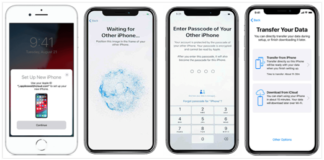When you need some help browsing the internet safely (and anonymously), it can be hard to resist a flashy FREE PROXY sign. They are everywhere around – offering to secure your online data and protect you from the prying eyes for free. So, why pay for a proxy then?
The benefits of paid proxies always outweigh free-of-cost solutions.
Whether this is your first time using a proxy or you’re still on the fence about choosing paid over a free version, stay with us for another look at all the perks of investing in your online security. Here’s how proxies work, why you need one, and why you should pay for it.
What are proxies, and how do they work?
Savvy individuals and businesses use proxies all the time.
The most frequent use cases for proxies are education and research. Businesses use them for data scraping whenever they need to support strategic decisions with hard facts. Product development and marketing are the two fields that benefit from proxies the most.
A proxy’s primary function is to ensure web anonymity for its users.
Let’s say you’re transferring sensitive business data from your private PC to the company’s cloud. This data can easily be intercepted by third parties, be they malicious or not. However, when you’re using a proxy, it acts as a buffer between you and everyone else on the internet.
The benefits of using a paid proxy solution
Proxes cater to many specific uses, so you can choose between reverse, transparent, or distorting proxies, just to name a few. The three main types of proxies are free, shared, and private. Though they are differently priced, the last two are both paid solutions.
The main benefits of using a paid proxy are:
Anonymity while browsing
Every website you visit can see your IP address and browsing history. Websites use cookies as tracking devices, meaning that virtually every website you’ve ever been on has a log of your off-site activity. That is how you see personalized ads and recommendations.
If that makes you feel unsafe or uncomfortable, that’s only normal.
One of the main benefits of using a paid proxy is guaranteed anonymity.
By filtering the requests your device sends to the target server on the internet, a proxy conceals all sensitive data – starting with your IP address and browser history.
Secure access and devices
The lack of encryption that exposes your data to theft and manipulation is not the only potential danger of browsing the internet without a proxy. When there is no security fence between you and the rest of the internet, your devices are in jeopardy too.
A proxy is a reliable shield against unauthorized access and malware.
Unlocking blocked content
Another popular use case for proxies is for unlocking blocked content.
In theory, every proxy should protect you from online tracking, theft, and malicious attacks by hiding your IP address behind a new one. While shared proxies dedicate the same set of IPs to multiple users simultaneously, private proxies are used only by one user at a time.
Private proxies are better than shared proxies in all aspects, except for the price. Find more info about private proxies here.
Depending on your needs, both types provide a reliable solution for circumventing geo blocking and bypassing anti-bots and other security measures that websites use to prevent data scraping.
Reliable connection & speed
When it comes to reliable connection and speed, free proxies can’t compete with paid solutions. In other words, if you want to protect your identity and data online but still be able to do anything at all, only a paid proxy will be able to help you out.
Because many users use them simultaneously, free proxies are notoriously slow and prone to crashes and downtime.
And unfortunately, that’s not the worst thing about free proxies.
How free proxies make their users vulnerable
The cost of using a free proxy might actually be greater than paying for one. On top of being slow, two bigger problems come from their zero-cost model. First, they are used by many people simultaneously, and second, free proxies must be funded from somewhere.
In consequence, a free proxy might make you even more vulnerable.
Heavy traffic weakens the security of individual users. You can never know who is using the same proxy as you. You’re likely sharing a proxy with someone with criminal intent. At best, your proxy will quickly end up on a blacklist of shady IP addresses.
However, another implication is even more problematic. A free proxy might be able to safeguard your online identity, but keep in mind that a proxy owner can still see – and sell – your data. It makes you wonder if that’s how free proxies are funded. Some probably are.
Conclusion
If private proxies are too steep for your budget, then at least choose any paid version. If you consider the actual cost of using a slow, blacklisted, limited, unreliable, and unsafe proxy, there’s really no dilemma that free proxies are actually more expensive than paid ones.















